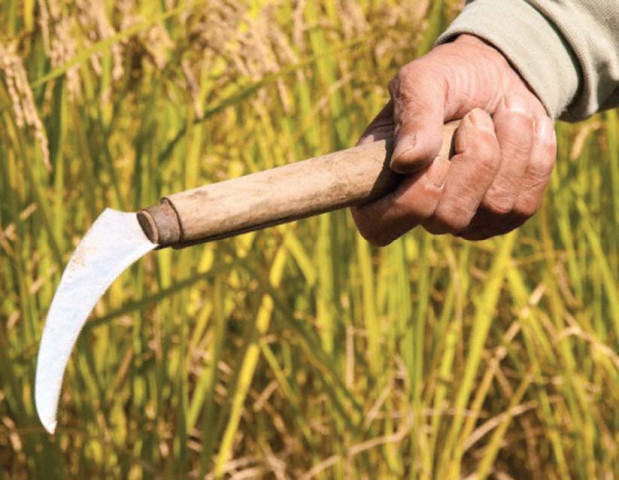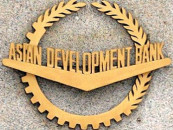Pillar to post: Aggrieved farmers from Sindh wait in vain
Sindh Abadgar Association seeks end to ‘illegal’ outlets taken out by influential politicians.

Aggrieved farmers from Sindh wait in vain. PHOTO: FILE
For over two months, tail-end farmers of the Sindh Abadgar Association have sat in protest camps outside the National Press Club demanding an end to “illegal” direct outlets taken out from Sindh’s Naseer Canal by influential provincial political leaders.

The outlets, they claim, have directed water away from cultivable land in Badin’s Khairpur-Gamboh sub-division. As a consequence, according to the farmers, 66,000 acres of land has turned barren, the livelihood of hundreds of growers has been affected and over 80,000 people are without adequate drinking water.
In the two months, the growers have tried their luck with the Supreme Court and the Parliament.
But the 16 direct outlets from the Naseer Canal, which flows out of the Rohri Canal from Sukkur Barrage, which were taken out during the past five years, have not been plugged, said Tariq Mehmood, the Abadgar association’s general secretary.
The growers have accused Sindh Chief Minister Qaim Ali Shah of using his discretionary powers to take out direct outlets which benefit feudal lords and other influential people.
The outlets, allegedly in violation of Sindh’s Irrigation Act because they discharge 15 times more water than stipulated by the act, have dried 10 canals at the tail-end of the Naseer Canal, according to the association’s members. This has forced most of the growers of cotton and wheat to sell wood or work in factories to make a living.
Around eighty members of the association showed up in the capital in the first week of September in the hope that their plight might get the Chief Justice to take a suo motu action on the water distribution issue.

A fresh application the growers sent to the Supreme Court’s Human Rights Cell (HRC) after they arrived in Islamabad has brought no response from the cell so far. An older application to the HRC had resulted in an inquiry to which the Sindhi authorities had responded with a typical denial of the issue.
Meanwhile, some members of the National Assembly helped the growers bring the issue to the attention of the National Assembly Speaker Sardar Ayaz Sadiq and President Mamnoon Hussain.
Mehmood said he met with the President on October 8 and presented him a letter on behalf of the association, which articulated the association’s demands. The President’s Secretariat then directed Sindh Chief Secretary Ijaz Chaudhry to take up the direct outlets issue with the Sindh government and the department of irrigation.
Mehmood then met with the chief secretary in Karachi as a follow-up meeting to the President’s directive.
“The chief secretary told me he was going to send a summary to the chief minister’s office and also ask the irrigation department to respond to the issue,” Mehmood said.
But there has been no update from the authorities since then and on November 10, the federal government replaced Chaudhry with Sajjad Saleem Hotiana. The replacement was suspended on Sunday by the Election Commission of Pakistan, which has asked the Establishment Division to explain the transfer. But if the change comes through, growers think it might further jeopardise their fledgling gains in resolving the water issue.
Back in September, the growers had said they had come to Islamabad after exhausting all options in Sindh. The Supreme Court was their last hope, they had said.
Some of the farmers have fallen ill in the Islamabad winter and their number has reduced to half for now. But their hope that the apex court — its white-marbled building just three kilometers away from the protest camps — would take notice of their plight remains.
Published in The Express Tribune, November 11th,2013.



















COMMENTS
Comments are moderated and generally will be posted if they are on-topic and not abusive.
For more information, please see our Comments FAQ